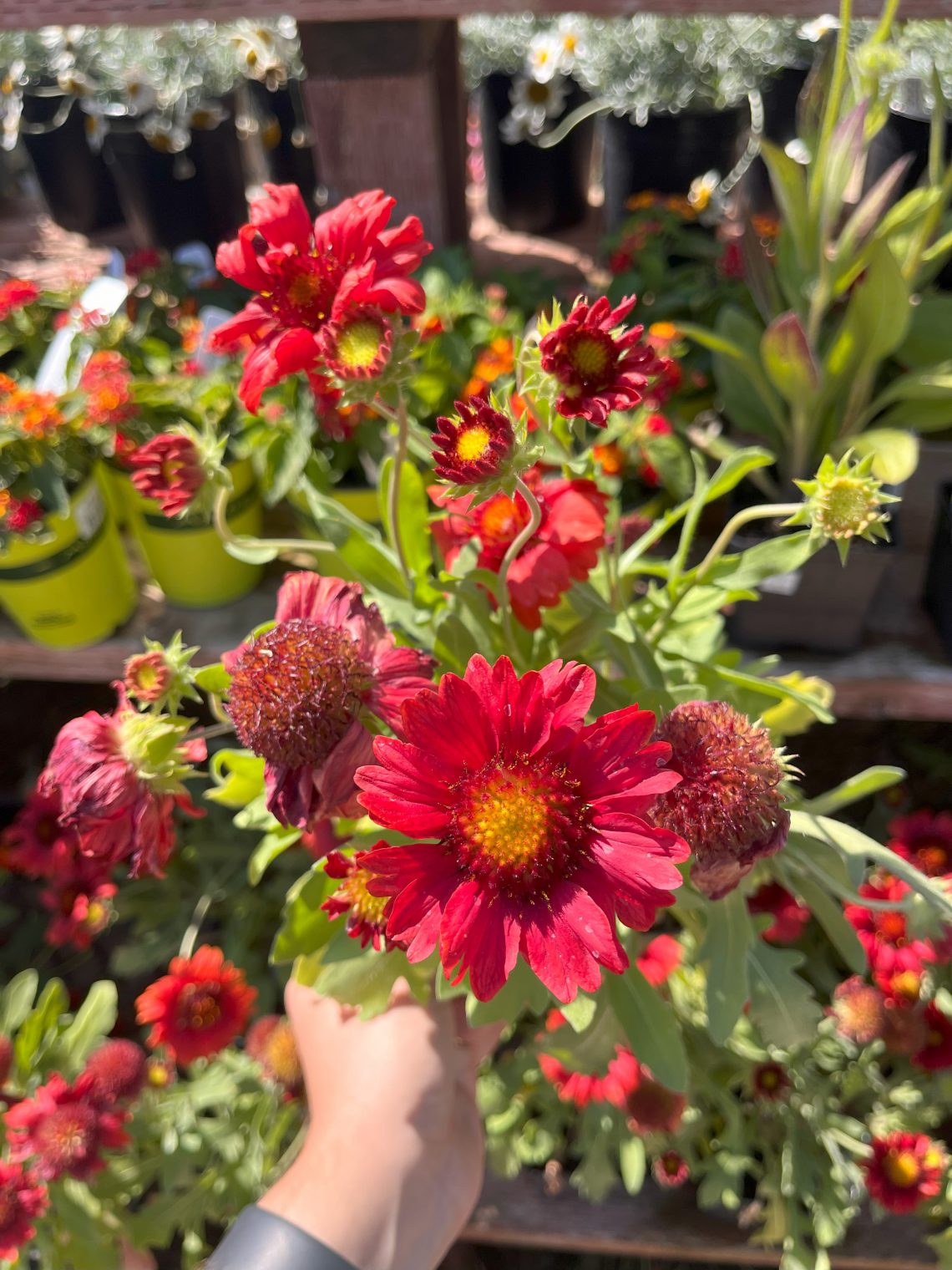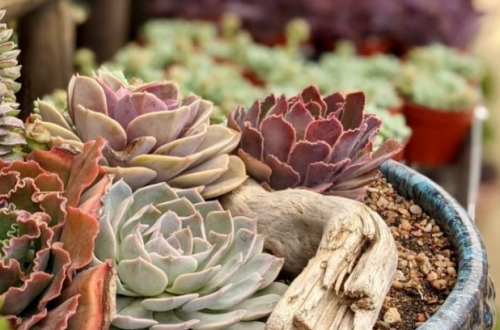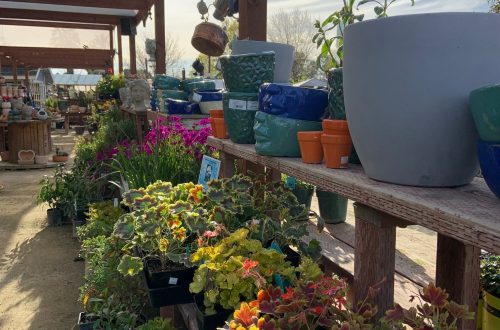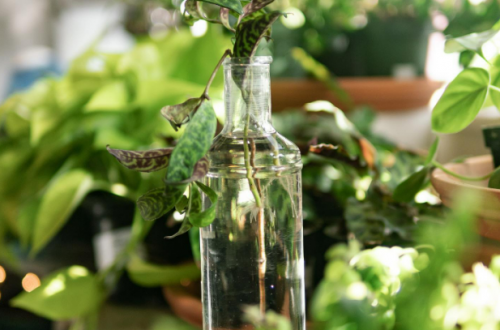
Everything You Need to Know about Feeding Your Plants –
Similar to the nutrient-rich food we need to sustain our human bodies, plants also require nutrients to grow and thrive. Fertilizers are the perfect way to add beneficial ingredients, thereby cultivating healthier plants. Standing in the fertilizer aisle of a big box store can be a bit overwhelming as fertilizer packaging can be confusing. Each one is marketed for a different purpose, however, the main information to watch for is the ratio of: Nitrogen (N), Phosphorus (P), and Potassium (K). Every box/bottle of fertilizer will list these percentages on their packaging. (See the 4-4-4 middle right in the image below.)

What do these numbers mean?
Nitrogen (N) is what supports a plant’s greenery and leaf growth. A deficiency in this often leads to the yellowing and browning of leaves.
Phosphorus (P) focuses on root development and budding flowers. A low number in this often causes slow growing leaves.
Potassium (K) regulates a plant’s overall growth – maintaining health and balance. Without this, leaves curl and become distorted.
Since the ratios are always listed in the same order on every package, an easy way to remember what each element does is the ditty “Up, Down, and All Around” for leaf growth, root growth and all around health.
Ultimately, the condition of your soil and the plants you’re growing will determine the type of nutrition they’ll need. If you’ve had your soil tested and you know exactly what your soil is deficient in, then you can go shopping for a fertilizer with a higher ratio of the element that’s needed. For the rest of us, going with a balanced, all purpose fertilizer is the best choice of action, since over-fertilizing can actually cause plant damage.
The Importance of Using Organic Fertilizers
We highly advocate using safe organic fertilizers with low, even element ratios to cultivate healthier plants over the use of synthetics. Unlike synthetic fertilizers that gather nutrition through manufactured processes, organic products focus on using natural materials – like animal manure, compost, alfalfa, etc. A combination of organic materials, delivering a low, even ratio of these three main ingredients, creates the perfect, safe, all-purpose combination. Conversely, synthetic fertilizers often push the plant to grow at an unsafe rate. As the plant grows too quickly it is weakened and becomes easy prey for pests, thereby entering into a vicious cycle of having to continually apply pest control products. So when choosing whether to use organic or synthetic, consider the analogy of safely feeding healthy foods to an athlete to gain strength versus steroid usage. Which would you choose for yourself or a loved one?
We choose to not even sell synthetic fertilizers in our store, that’s how strongly we feel about it. The health and safety of our plants and our team is our primary focus. One of our favorites here at The Secret Garden is Dr. Earth’s Premium Gold All-Purpose Fertilizer. Simply add it into the base of the plant when you’re planting or scratch it into the surface of an established plant as needed. An organic and natural hand crafted blend, this granular product is a slow-release formula, with nutrients being released each time the plant is watered. Follow directions on the bag, but at the nursery, we generally apply slow-release fertilizer twice during the growing season.

While we prefer these slow-releases for a set it and forget it mindset, Dr. Earth’s pump and grow liquid food for houseplants and cactus and succulents also provide the essential nutrients in a controlled, convenient form; simply add it to your watering can or directly to the soil surface at the base of each plant – one pump for each gallon of soil. These products advise adding this food every two weeks during the growing season.
When To Fertilize
Keep in mind to only fertilize actively growing plants. Fertilizing at the wrong time, especially with plants preparing for dormancy, can ultimately cause plant damage. Encouraging plant growth at a time the plant should be resting, can increase the likelihood of developing diseases and attracting pests.
Still have questions? We can help! Contact Us for more specific questions or if you need application guidance. Always read warning labels and first aid directions on bottles. Purchase these fertilizers directly on our online shop, or stop by today! We’re open everyday, Monday through Sunday, from 10am to 5pm. Come speak with an associate to find the right product for your plants!
Thank you to Courtney Giles for her work on this post.





